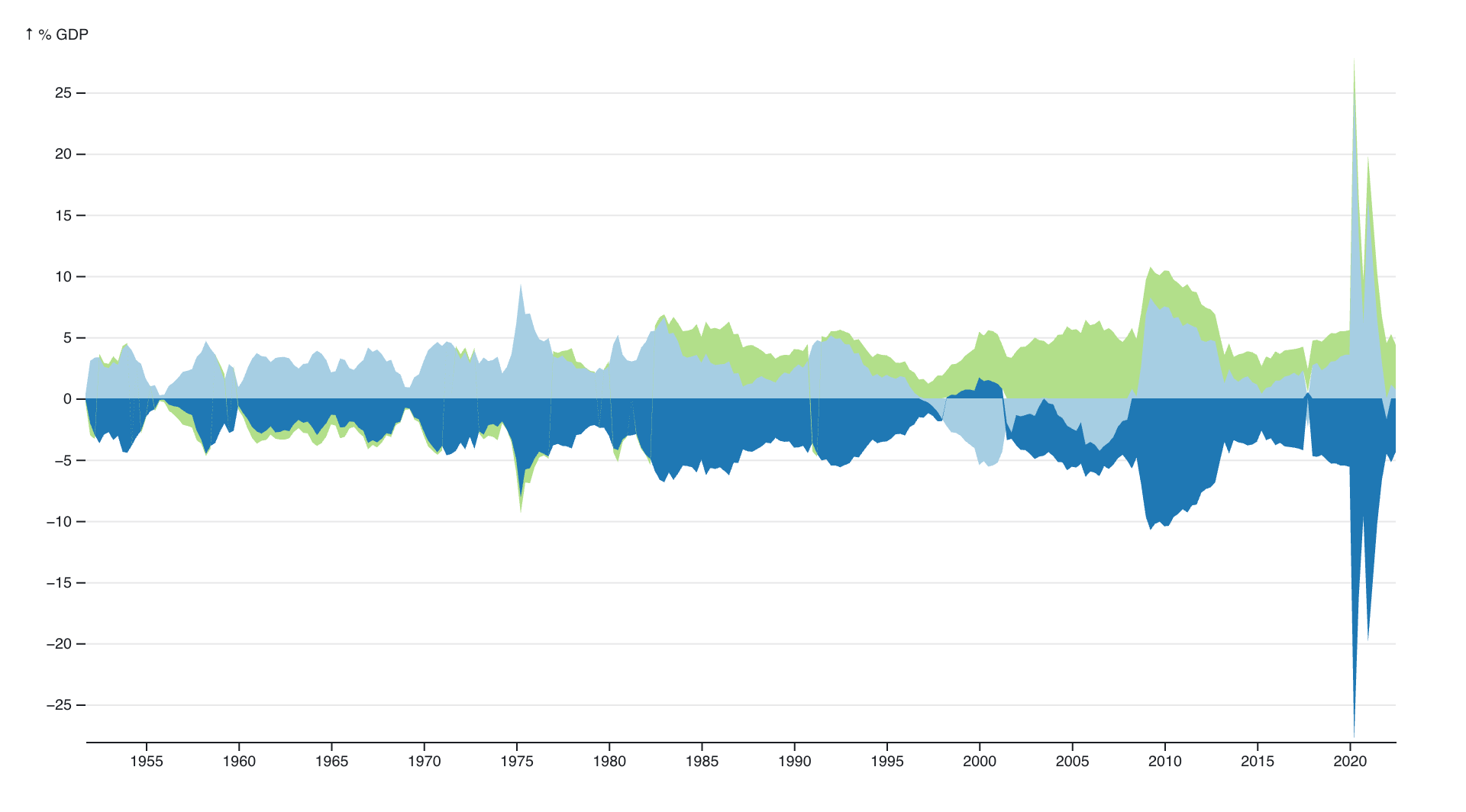MMT Says...
It's funny to me when I see someone posting about how 'MMT says...' followed by a deficient interpretation of the literature, hardly ever citing any specific literature or claim.
Who, exactly, is this MMT? And what, exactly are they saying??
It's funny because MMT isn't a person, an idea, or even a singular body of literature. MMT is an more-accurate conception of financial macroeconomics precisely because it is not built on the false presupposition that money is scarce. It's an easy inference to make– to presume that there's simply not enough money to go around. It sure seems that way! If that weren't the case, then wouldn't things be totally different? The answer is YES – and things will indeed change as more and more minds continue to inquire into how money works. We're learning and growing.
Strawmen: A hallmark of progress
To me, it's the lack of direct engagement with the literature that differentiates the skeptics (who are inquisitive & reasonable) from the cynics (who may be overly confident in their worldview). And we can all be skeptical or cynical based just on our mood alone. Anyhow, you can't have a constructive conversation without first having some common ground – a good-enough understanding and specific sources to reference on any given topic, especially for such a technical topic. Generalizing claims from a body of literature you're not familiar with tends to prop up 'strawman arguments', where we argue against claims that nobody has made, but rather claims that we inferred others have made.
Even though straw-manning isn't constructive, it can be seen as free comedy and ultimately a good sign that more and more people are getting curious. It's a sign that MMT has progressed to the Fight You stage of the old addage:
First they ignore you
Then they laugh at you
Then they fight you
Then you win
The Fight You stage is rife with straw-manning.
— Stephanie Kelton (@StephanieKelton) March 14, 2024
The next time you see a strawman argument in the wild, rejoice! Rejoice in the progress that MMT has made in the past few decades, originating (or rediscovered) as an investment insight, flourishing as an academic literature, and now growing a more democratic discourse in the realm of economic policy.
It's happening. This is how the paradigm shifts.
The Strawman Antidote
I think the over-generalizations and misinterpretations of the literature are lousy and inexcusable in an academic context, but I've found that bitterness and resentment don't get us very far. And from a more compassionate view, you can see how such a technical literature has only had so much success in getting through to the broader public.
In the grand scheme, how many people are reading books, much less academic articles? This is a question that has preoccupied my mind for some years now, and I've finally come to a working solution that I think has a real chance of accelerating the paradigm shift.
What we need is the digital infrastructure that helps newcomers ask their entry-level questions, to get oriented and understand where to find what 'MMT says' about X. We need to make it as easy as possible for any curious mind to understand key MMT concepts and their implications.
That's why ChatMMT exists!
ChatMMT is a digital reception for newcomers to ask their 'dumb questions'.
With the upcoming release of ChatMMT 2.0, the chatbot will automatically provide links to its information sources so that we can all focus on specific claims in specific papers written by real people rather than "MMT".
Open question: What do you call the old paradigm?
Given the profound implications of modern money, learning MMT necessarily engenders pivotal change in one's worldview. We call it "MMT" because it's a relatively new conception in the academic literature, but soon enough we'll need a term to describe the outmoded paradigm because we'll be viewing the old paradigm from the perspective of MMT, not the other way around. At that point (now?) we'll need a new term to describe the older, less-accurate paradigm so we can stop referring to MMT as some outside concept, but rather as the ordinary baseline. Maybe we can call that old paradigm something along the lines of "scarcity economics"?
feedback | consulting | media | philanthropy
Brought to you by our sponsor


